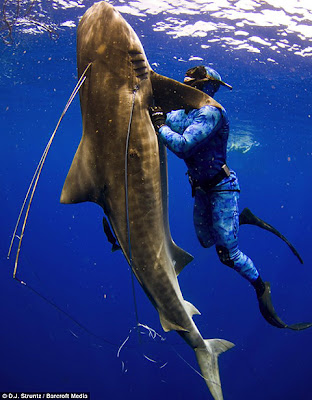
Yes, after 10 years, Fiji have just won the Hong Kong Sevens!
Let the Party begin!
Blog about "The World's best Shark Dive" by Beqa Adventure Divers. Featuring up to eight regular species of Sharks and over 400 different species of fish, Shark diving doesn't get any better!


 Tigers are not really new to Cocos.
Tigers are not really new to Cocos.
Why did that happen? What questions were asked? Why did we need to pay 100 cents on the dollar on those transactions if we had to pay anything?
What would have happened to the financial system had it not been paid?
These are the questions that should be pursued. Bonus is a real issue, it touches us viscerally, the real money, and the real structural issue is the dynamic between AIG and the counterparties.
ZAKARIA: Because those payments are in the tens of billions of dollars, the bonuses are a few hundred million.
SPITZER: The bonuses, we think, are $164 million, give or take, huge money, I mean, nobody should diminish that, but these counterparty payments, tens and tens of billions of dollars.
ZAKARIA: And it -- to your mind it seems as though that this taxpayer may have been recklessly and unwisely paid out?
SPITZER: Maybe the case could be made that it should have been paid. But at a moment in our nation's history, when everybody is being asked to bear a piece of the burden, everybody, people are being told, work four days a week, not five, sales taxes are going to go up, contracts are being broken and renegotiated for workers across America, our 401(k)s and our savings have been depleted by the recklessness of Wall Street.
For Goldman and the other counterparties not to be able to say, we can make do with only 50 cents on the dollar, 30 cents on the dollar, after we've already given Goldman a $25 billion cash infusion, they are sitting on vast amounts of cash on the sidelines -- which is their right, but they're going to invest it in due course based upon their judgment.
For them, on top of all of that, to get another $12.9 billion in the dark without questions after a meeting of this sort is fundamentally wrong. And that is the nature of the inquiry that should be raised.








 Karen and her husband Paul (both of Tahiti Aggressor fame) own Dive Vava'u, hands down the most professional, best-equipped and most Conservation-oriented dive shop in Tonga.
Karen and her husband Paul (both of Tahiti Aggressor fame) own Dive Vava'u, hands down the most professional, best-equipped and most Conservation-oriented dive shop in Tonga. 
 Good News - or is it?
Good News - or is it?
 And on top of the demise of the Coral Reef Habitats, the Ocean would lose, and even reverse its present function as the most important Carbon Sink, obviously with further devastating consequences for the whole planet.
And on top of the demise of the Coral Reef Habitats, the Ocean would lose, and even reverse its present function as the most important Carbon Sink, obviously with further devastating consequences for the whole planet.
 These are sort of "Park Rangers" who are given full authority by the Government to enforce the Fisheries Law. They can arrest poachers, inspect cargo, even confiscate catches and boats - great for monitoring and enforcing the fishing ban in our respective Marine Protected Areas!
These are sort of "Park Rangers" who are given full authority by the Government to enforce the Fisheries Law. They can arrest poachers, inspect cargo, even confiscate catches and boats - great for monitoring and enforcing the fishing ban in our respective Marine Protected Areas!
"2009-03-03


